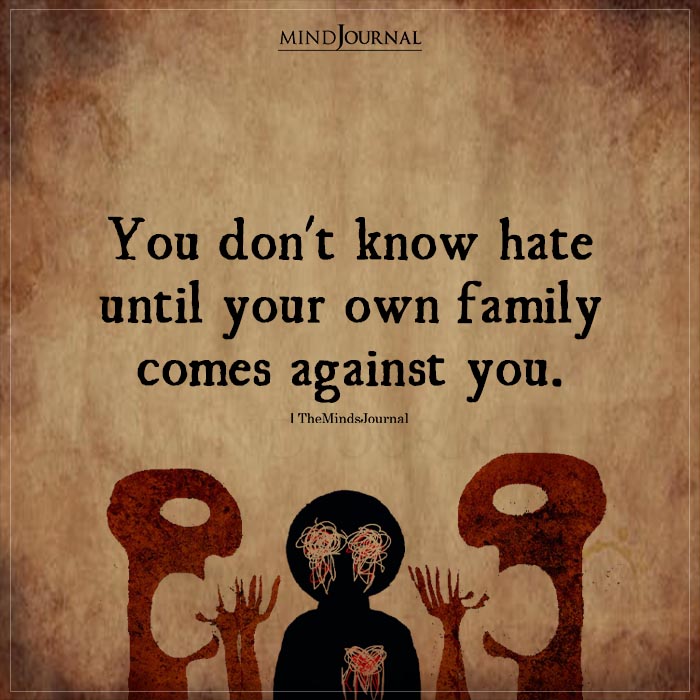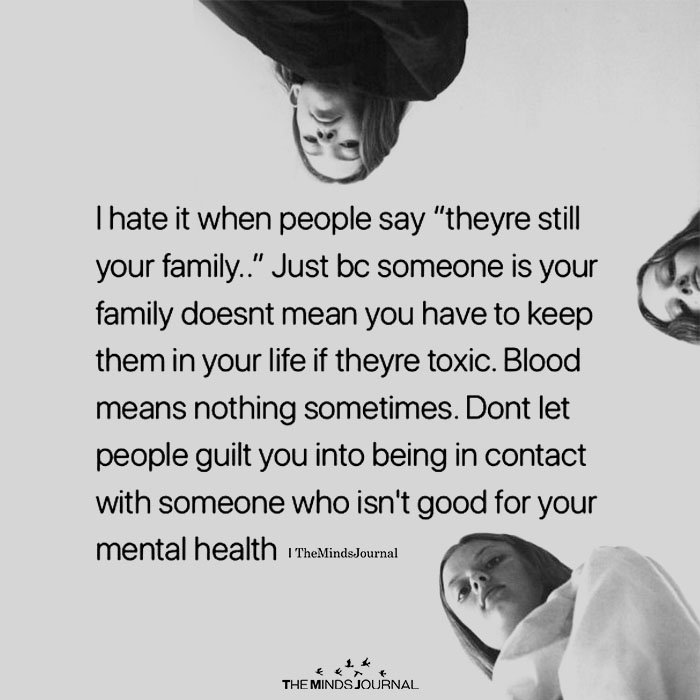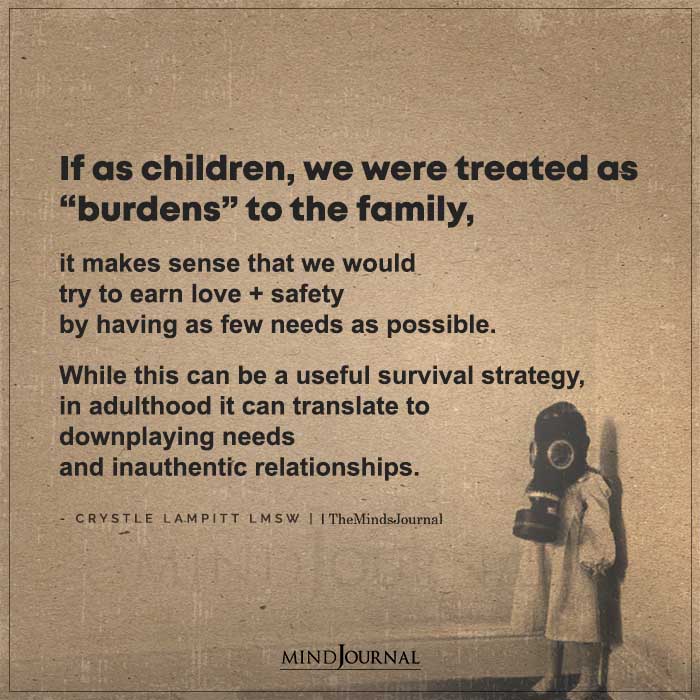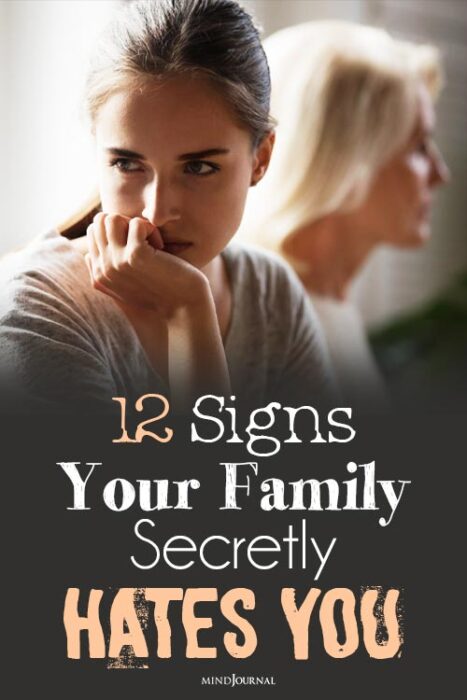Have you ever felt invisible, unloved, or unsupported within your own family? It’s a heartbreaking experience to realize that those who are supposed to be our closest allies may not prioritize our well-being. Let’s explore the signs your family hates you.
These signs indicate that your family may not care about you, and offer guidance on how to cope with this difficult situation. Remember, you are not alone, and there are steps you can take to build a fulfilling life despite the absence of familial support.
When Your Family Doesn’t Care About You
Family is often considered the cornerstone of love, compassion, and belonging. However, for some individuals, family dynamics can be deeply challenging.
It’s tough when you feel like your family isn’t there for you. Maybe they don’t show much interest in your life, ignore your feelings, or constantly criticize you. It can leave you feeling pretty down and lonely. But remember, you’re not alone in feeling this way.

Sometimes families have their own issues or struggles that make it hard for them to show they care. It’s important to find support elsewhere, whether it’s from friends, mentors, or a therapist. And remember, your worth isn’t defined by how your family treats you. You deserve love and respect, no matter what.
Related: What Is A Dysfunctional Family? Identifying Signs and Types Of Toxic Families
It’s important to recognize that the signs your family doesn’t care about you may not necessarily mean that your family hates you, but rather that they may exhibit behaviors that indicate a lack of care or emotional investment in your well-being.
Signs Your Family Hates You: 12 Red Flags
Ever feel like your family isn’t quite there for you? Here are some signs your family doesn’t care about you that you might relate to –
1. Lack of Emotional Support
One of the key indicators that your family may not care about you is their consistent lack of emotional support. Your thoughts, feelings, and experiences may be dismissed, ignored, or trivialized.
You may find it difficult to have meaningful conversations or receive empathy from your family members. This emotional neglect can leave you feeling isolated and unvalued.
2. Constant Criticism and Disapproval
If your family constantly criticizes and disapproves of your choices, appearance, or achievements, it may be a sign that they don’t genuinely care about your happiness or success.
Negative comments and judgmental attitudes can erode your self-esteem and make it challenging to develop a positive self-image. This is one of the most common signs your family hates you.
3. Lack of Inclusion and Involvement
When your family doesn’t care about you, they may exclude you from important events, gatherings, or decision-making processes. You might feel like an outsider within your own family, which can intensify feelings of rejection and loneliness.
Your opinions and desires may be consistently disregarded, leaving you feeling unheard and unimportant.
4. Absence of Empathy and Understanding
Empathy is a crucial element of healthy relationships, especially within families. If your family members consistently lack empathy and fail to understand your perspective, it can be emotionally devastating.
They may invalidate your emotions or belittle your experiences, leaving you feeling invisible and invalidated.
Related: Parental Gaslighting: 5 Ways Parents Gaslight Their Children And Break Their Hearts
5. Neglecting Your Basic Needs
Families are expected to provide a nurturing environment that addresses the basic needs of their members. However, if your family neglects your physical, emotional, or psychological needs, it may be a clear indication that they don’t care about your well-being.
This neglect can manifest as a lack of financial support, inadequate healthcare, or emotional abandonment, among other forms.

6. Favoritism and Sibling Rivalry
In families where favoritism is prevalent, some members may receive preferential treatment while others are consistently overlooked or mistreated. This dynamic can lead to deep-seated sibling rivalries and feelings of inadequacy.
If you find yourself on the receiving end of this unequal treatment, it’s essential to understand that the issue lies with your family’s behavior and not your worth as an individual.
Looking for more signs your family hates you? While ‘hate’ may be a strong word, certain behaviors from loved ones can often make you feel like that. Read on to learn more about signs your family doesn’t care about you.
7. Lack of Respect for Boundaries
Respecting personal boundaries is a fundamental aspect of healthy relationships. However, if your family consistently disregards your boundaries, it can be a sign that they don’t value your autonomy or individuality.
This lack of respect can lead to emotional distress and hinder your personal growth.
8. Emotional or Physical Abuse
In extreme cases, families that don’t care about you may subject you to emotional or physical abuse. Such abusive behaviors can manifest as verbal insults, threats, physical violence, or neglect.
If you find yourself in an abusive environment, it is crucial to seek help and remove yourself from the situation as soon as possible. You deserve to live a life free from toxicity and harm.
9. Withholding Love and Affection
Love and affection are essential for emotional well-being, and when your family withholds these expressions, it can be deeply painful. Lack of warmth, tenderness, and emotional closeness can create emotional distance and hinder your ability to form healthy relationships in the future.
10. Lack of Interest in Your Achievements and Milestones
When your family doesn’t care about you, they may show disinterest or even indifference towards your achievements and milestones. Whether it’s celebrating your academic or professional accomplishments, acknowledging personal growth, or recognizing important life events, their lack of enthusiasm can make you feel unimportant and undervalued.
Instead of offering encouragement and support, they may downplay or ignore your successes, leaving you feeling unseen and unappreciated. This is among the most observed red flags and signs your family hates you.
11. Constant Comparison and Undermining
If your family constantly compares you to other family members or individuals outside the family, it can be a sign that they don’t care about your uniqueness and individuality. They may undermine your abilities, talents, or aspirations by highlighting the achievements or qualities of others.
This constant comparison not only diminishes your self-confidence but also creates an environment where your own aspirations and endeavors are devalued, further reinforcing the perception that your family doesn’t care about you.
Related: 7 Major Signs You Belong To An Abusive And Toxic Family
12. Lack of Advocacy and Protection
In a caring family, members support and protect each other, especially during challenging times. However, if your family consistently fails to advocate for your needs or protect you from harm, it may indicate a lack of care.
They may dismiss or ignore your concerns, leaving you to navigate difficult situations or face adversity on your own. This absence of support and protection can be emotionally distressing and leave you feeling vulnerable and abandoned. This is perhaps one of the most subtle signs your family doesn’t care about you.
Remember, recognizing these ‘signs your family hates you’ doesn’t necessarily mean that your family ‘hates’ you, but it highlights their inability or unwillingness to provide the care and support you need.
It’s important to prioritize your own well-being, seek support from outside sources, and focus on building a fulfilling life despite the lack of familial care. You deserve to be surrounded by individuals who genuinely care for and appreciate you.
What to Do When Your Family Doesn’t Care About You
So, your family’s not exactly your cheerleading squad? Understanding the signs your family hates you is the first step in your healing journey as it can help you figure out what to do when your family doesn’t care about you.
Here’s how to navigate when you’re feeling overlooked or undervalued –
1. Seek Support Outside the Family
If your family doesn’t provide the support and care you need, it’s essential to seek support from friends, mentors, or support groups. Building a network of individuals who value and appreciate you can provide the emotional support you may be lacking within your family.
2. Prioritize Self-Care
Focus on self-care activities that nourish your emotional and physical well-being. Engage in hobbies, exercise regularly, practice mindfulness, and seek therapy or counseling to process your emotions and develop coping mechanisms.
3. Set Boundaries
Establishing clear boundaries with your family members can help protect your emotional well-being. Communicate your limits and expectations firmly but respectfully, and be prepared to enforce those boundaries if they are violated. Remember, setting boundaries is an act of self-care and self-respect.
Related: Cutting Off Toxic Family Members: Why Cutting Ties With Toxic Family Is Necessary
4. Seek Professional Help
If the emotional impact of your family’s indifference becomes overwhelming, consider seeking professional help from therapists or counselors who specialize in family dynamics.
They can provide guidance, support, and strategies to help you navigate your emotions and develop healthy coping mechanisms. This is what to do when your family doesn’t care about you.

5. Build a Chosen Family
While your biological family may not provide the care you deserve, it’s possible to create a chosen family of supportive individuals who genuinely care about your well-being. Surround yourself with friends, mentors, community members or online groups who uplift and validate you, forming deep and meaningful connections.
6. Focus on Personal Growth
Instead of dwelling on the lack of care from your family, channel your energy into personal growth and self-improvement. Set goals, pursue education or career opportunities, and engage in activities that bring you joy and fulfillment.
Focusing on your own development can help you build a fulfilling and independent life.
7. Practice Forgiveness
Forgiving your family members may not be easy, but it can be a powerful step towards healing. Forgiveness is not about condoning their actions or forgetting the pain they caused; rather, it is about releasing the emotional burden and freeing yourself from resentment.
Forgiving allows you to move forward and create a brighter future for yourself. Now you know the secret solution to what to do when your family doesn’t care about you.
Takeaway
Recognizing that your family doesn’t care about you is a painful realization, but it’s important to remember that your worth and value as an individual are not determined by their actions or lack thereof.
By understanding the signs your family hates you or familial neglect, seeking support, setting boundaries, and focusing on personal growth, you can build a fulfilling and meaningful life despite the absence of familial care.
Remember, you deserve love, support, and happiness, and there are people out there who will provide that for you.
Related: 12 Steps For Family Scapegoat Healing
Frequently Asked Questions (FAQs):
How do I know if my family doesn’t like me?
Signs your family doesn’t like you may include lack of support, criticism, exclusion, dismissive behavior, and frequent arguments or conflicts.
Is my family toxic or am I toxic?
You can assess family dynamics for toxicity by looking for patterns of manipulation, control, emotional abuse, lack of boundaries, and mutual respect.
How do you deal with a nasty family member?
To deal with a nasty family member, set boundaries, prioritize self-care, seek support, and consider professional help or family therapy.









Leave a Reply
You must be logged in to post a comment.